As recently as NARCA’s fall conference in Washington, D.C., the question of is or isn’t something a dialer still comes up in panel Q&As. Dialers, and the one-strike rule, probably cause the most confusion, currently, in the industry in the wake of a declaratory ruling that was intended to explain it all to us.
We reached out to several industry attorneys with a dialer question that came up in one of our webinars:
QUESTION: We have a dialer that can initiate a single manual driven call. Would this single call be considered an “auto-dialer” call, and therefore in violation of the new TCPA regulation?
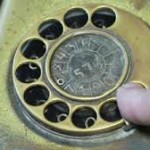 John Bedard, Bedard Law Group: Using fingers to dial a telephone number to place a call does not, itself, cause that phone call to fall outside the regulation of the TCPA. If you’re using a dialer to make calls, those calls are covered by the TCPA whether you’re using your fingers to make the call or not.
John Bedard, Bedard Law Group: Using fingers to dial a telephone number to place a call does not, itself, cause that phone call to fall outside the regulation of the TCPA. If you’re using a dialer to make calls, those calls are covered by the TCPA whether you’re using your fingers to make the call or not.
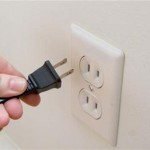 Joann Needleman, Clark Hill: Yes. The issue is the technology, not the act of the manual dial. You answered your own question by saying that the computer is initiating the manual call. The lack of human intervention was a key issue for the FCC. Unplug the computer and manually dial.
Joann Needleman, Clark Hill: Yes. The issue is the technology, not the act of the manual dial. You answered your own question by saying that the computer is initiating the manual call. The lack of human intervention was a key issue for the FCC. Unplug the computer and manually dial.
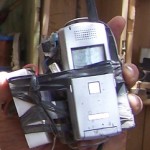 Mike Poncin, Moss & Barnett: If it’s being called on a system that has the capacity to be an ATDS, there is a good chance it wold be deemed an ATDS call. More information would be needed to further answer, such as any level of human intervention, which would need to be looked at on a case-by-case basis.
Mike Poncin, Moss & Barnett: If it’s being called on a system that has the capacity to be an ATDS, there is a good chance it wold be deemed an ATDS call. More information would be needed to further answer, such as any level of human intervention, which would need to be looked at on a case-by-case basis.
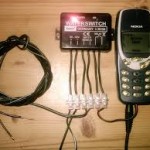 John Rossman, Moss & Barnett: Whether or not the dialer described in this question would be considered an ATDS will depend on whether it has the capacity to operate as an ATDS or whether it can be modified to operate as an ATDS. I recommend asking these questions of your dialer company, and following up with your counsel on a response.
John Rossman, Moss & Barnett: Whether or not the dialer described in this question would be considered an ATDS will depend on whether it has the capacity to operate as an ATDS or whether it can be modified to operate as an ATDS. I recommend asking these questions of your dialer company, and following up with your counsel on a response.
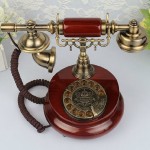 Lewis Weiner, Sutherland: The answer depends on what “capacity” the system has. The FCC’s recent order focuses on capacity, not utility. If the system has the capacity to randomly generate numbers, etc., it will be deemed an autodialer, even though it is used only to initiate a single manual driven call. If the system has the capacity to only initiate a single manual driven call, it likely would not be considered an autodialer. One of the more unfortunate aspects the FCC’s ruling is that it fell well short of providing specific guidance as to what does and does not constitute an authodialer. The FCC’s reference to a rotary dialed phone as not having sufficient capacity to be deemed an autodialer was, let’s just say, less than helpful.
Lewis Weiner, Sutherland: The answer depends on what “capacity” the system has. The FCC’s recent order focuses on capacity, not utility. If the system has the capacity to randomly generate numbers, etc., it will be deemed an autodialer, even though it is used only to initiate a single manual driven call. If the system has the capacity to only initiate a single manual driven call, it likely would not be considered an autodialer. One of the more unfortunate aspects the FCC’s ruling is that it fell well short of providing specific guidance as to what does and does not constitute an authodialer. The FCC’s reference to a rotary dialed phone as not having sufficient capacity to be deemed an autodialer was, let’s just say, less than helpful.




![the word regulation in a stylized dictionary [Image by creator from ]](/media/images/Credit_Report_Disputes.max-80x80.png)
![Cover image for New Agent Onboarding Manuals resource [Image by creator from insideARM]](/media/images/New_Agent_Onboarding_Manuals.max-80x80_3iYA1XV.png)


![[Image by creator from ]](/media/images/New_site_WPWebinar_covers_800_x_800_px.max-80x80.png)
![[Image by creator from ]](/media/images/Finvi_Tech_Trends_Whitepaper.max-80x80.png)
![[Image by creator from ]](/media/images/Collections_Staffing_Full_Cover_Thumbnail.max-80x80.jpg)
![Report cover reads One Conversation Multiple Channels AI-powered Multichannel Outreach from Skit.ai [Image by creator from ]](/media/images/Skit.ai_Landing_Page__Whitepaper_.max-80x80.png)
![Report cover reads Bad Debt Rising New ebook Finvi [Image by creator from ]](/media/images/Finvi_Bad_Debt_Rising_WP.max-80x80.png)
![Report cover reads Seizing the Opportunity in Uncertain Times: The Third-Party Collections Industry in 2023 by TransUnion, prepared by datos insights [Image by creator from ]](/media/images/TU_Survey_Report_12-23_Cover.max-80x80.png)
![Webinar graphic reads RA Compliance Corner - Managing the Mental Strain of Compliance 12-4-24 2pm ET [Image by creator from ]](/media/images/12.4.24_RA_Webinar_Landing_Page.max-80x80.png)